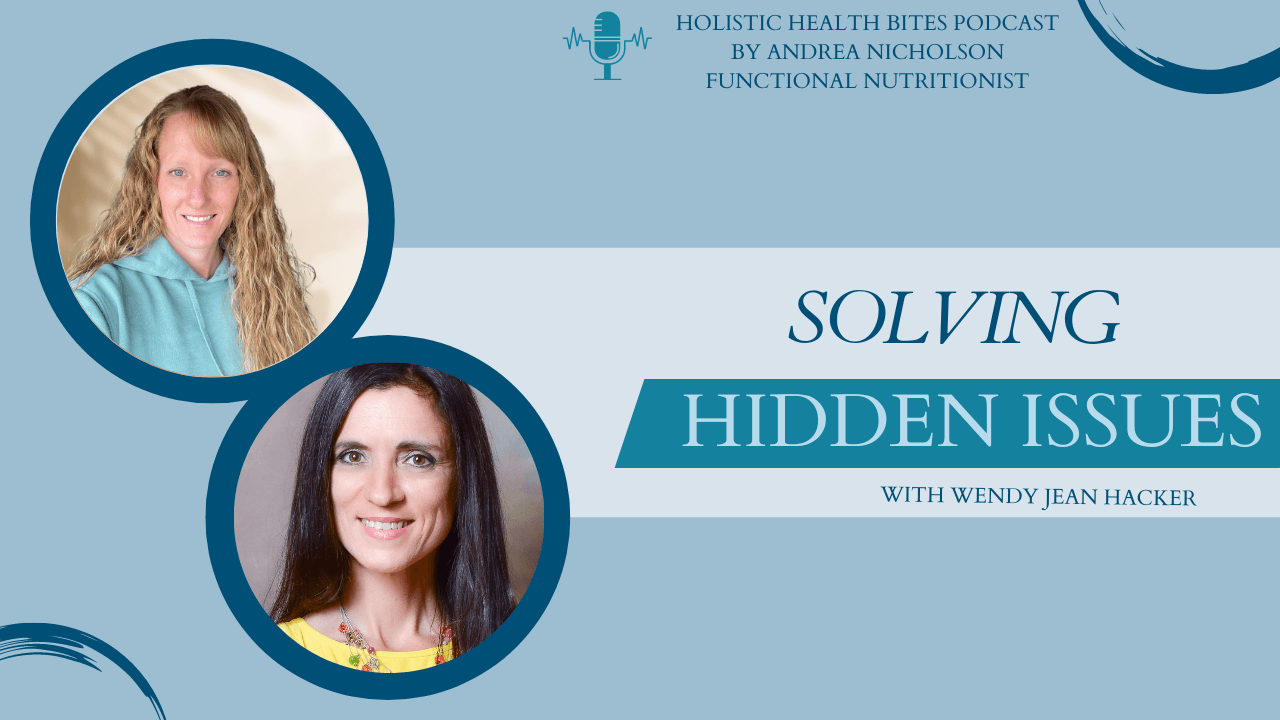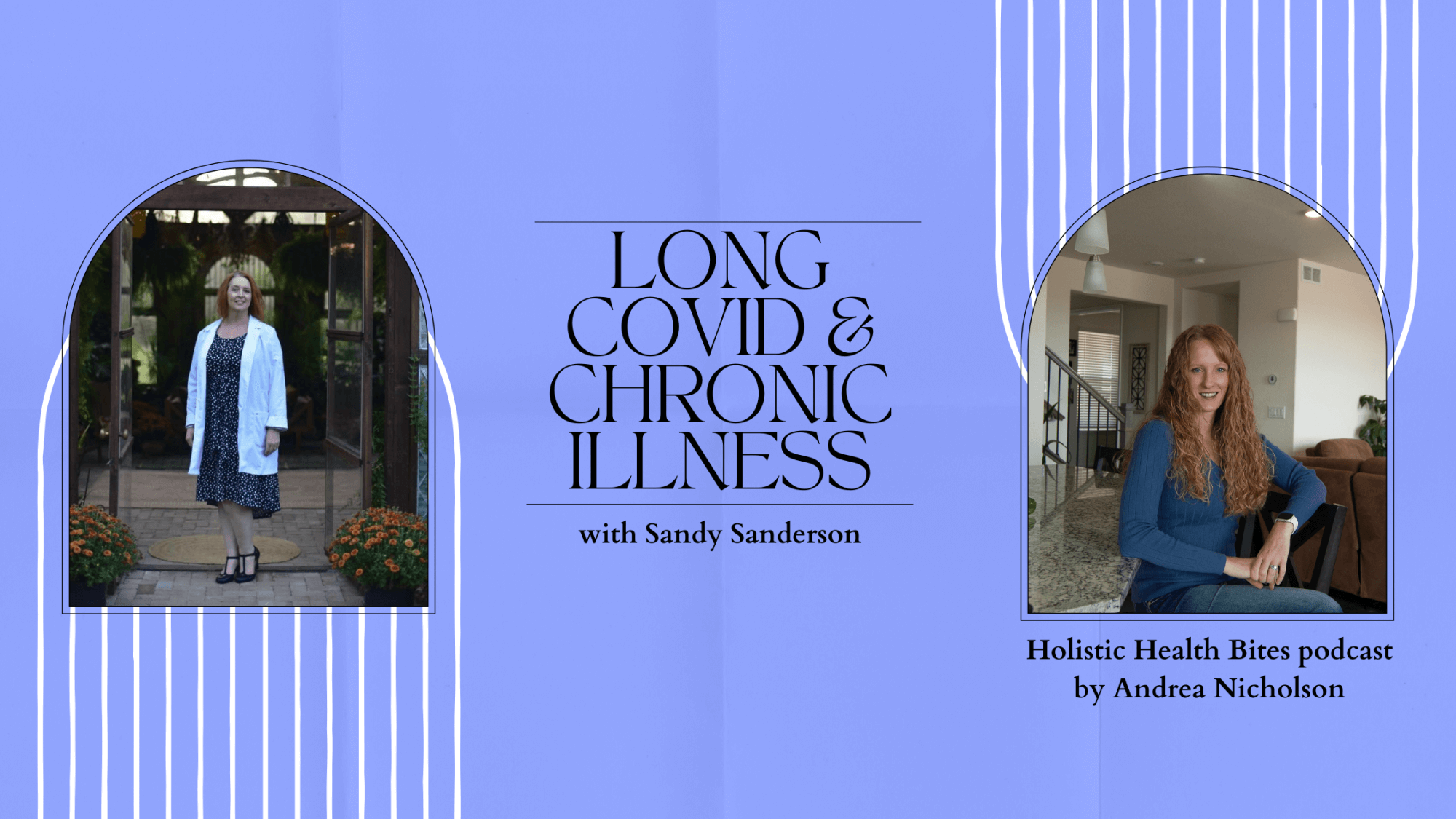
Carol shared her experience supporting a friend through breast cancer, launching her focus on integrative support. She outlined the multi-step diagnostic process and initial treatment options involving biopsies, oncology meetings, potential neoadjuvant chemotherapy, surgery choices and chemotherapy/radiation. Carol detailed the complex diagnostic journey from discovery to pathology reports to oncology meetings to potential neoadjuvant chemotherapy and surgery, emphasizing patients' rights to second opinions on mastectomy recommendations given research on benefits versus risks. She stressed examining nutrition by reading packaged food labels, shopping at health stores and farmers markets, eliminating processed foods and creating a toxin-free home.
Read more...
On this episode of the Holistic Health Bites podcast, host Functional Nutritionist Andrea Nicholson has special guest Divya Dhawan discussing holistic health, with a particular focus on autoimmunity and its relationship with metabolic health. Divya shared her personal journey with an autoimmune disorder and her research on alternative medicine, emphasizing the importance of eating organic, seasonal, and local foods. She also discussed the challenges faced by individuals with autoimmune conditions and unexplained symptoms, the potential negative impacts of high cortisol levels on blood sugar and the risk of diabetes, and encouraged viewers not to give up on their health.
Read more...
On this episode of the Holistic Health Bites podcast, my guest Wendy Hacker explains her story of battling Lyme disease for years without progress resonated deeply with many. She highlighted the transformative power of understanding your own genetic landscape. After discovering how genes influence susceptibility to infections and response to treatment, Wendy utilized genetic testing to uncover underlying factors like mold exposure and methylation issues impacting her health. By tailoring her diet, environment, and lifestyle based on this personalized roadmap, she achieved significant improvement. Importantly, Wendy emphasizes that genes are not fate, stressing the power of epigenetics to modify their expression. Inspired by her own journey, Wendy now empowers others struggling with chronic illness by analyzing their genetic data and providing customized health guidance. This talk serves as a powerful reminder: don't underestimate the power of genetic insights, explore alternative healthcare options, advocate for yourself, and remember, even complex illnesses can have paths to healing.
Read more...
Sandy, a nurse practitioner, shared her journey of starting a private practice focused on telehealth and in-person services for hormone balancing and medical weight loss during the pandemic. She also shared her personal health journey, including her success with a gluten-free diet, struggles with autoimmune issues and weight gain, and recent Covid-19 diagnosis with dysautonomia. She is now interested in helping others with long Covid syndrome and discussed the potential triggers for autoimmune conditions, the need for food sensitivity testing, and the ongoing challenges of Covid-19's long-term effects.
A recent study published in the journal Gut has shown that diet plays a significant role in preventing serious cases of COVID-19. The study followed over half a million people and found that those with the highest scores for a diet rich in healthy whole plant-based foods had a 9% lower risk of developing COVID-19 at all and a 41% lower risk of developing severe COVID-19. Similar results have been found in a study focused on healthcare workers, emphasizing the importance of a plant-centric or pescatarian diet in reducing the risk of severe illness.
The study does not suggest that a completely vegetarian or vegan diet is necessary to see these benefits. Instead, it emphasizes the importance of consuming whole foods, especially from plants, rather than processed and refined foods. This includes prioritizing vegetables, fruits, legumes, nuts, seeds, and unrefined oils, while avoiding refined grains, refined oils, and toxins commonly found in non-organic and conventionally raised animal products.
Additionally, fasting can further boost the immune system by allowing the body to cleanse and repair itself. Even compressing the eating window by a couple of hours can provide significant benefits, allowing for 14 hours of fasting overnight. Prioritizing a healthy diet and incorporating fasting can help reduce the risk and severity of COVID-19, along with other chronic conditions.
Read more...















